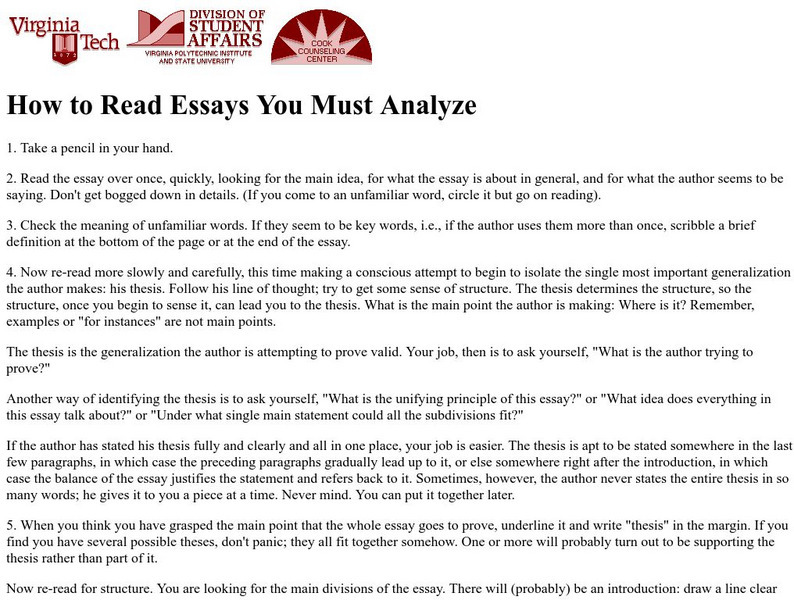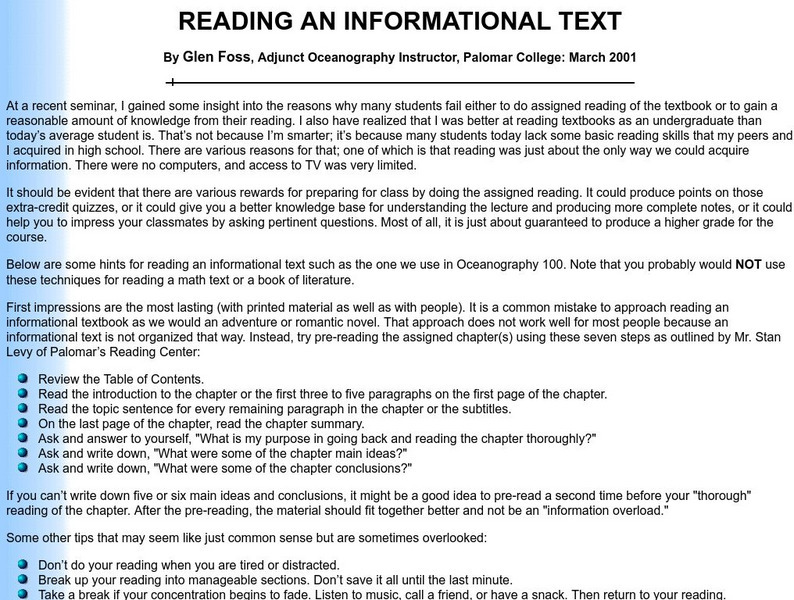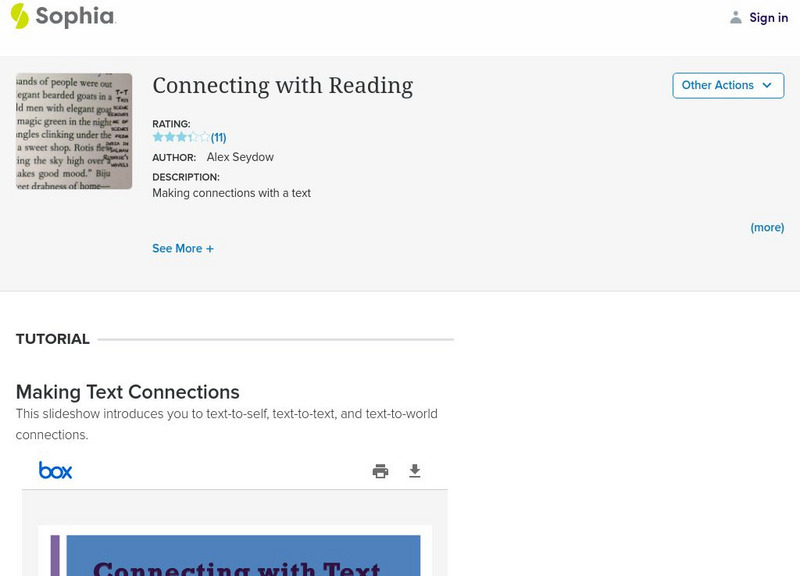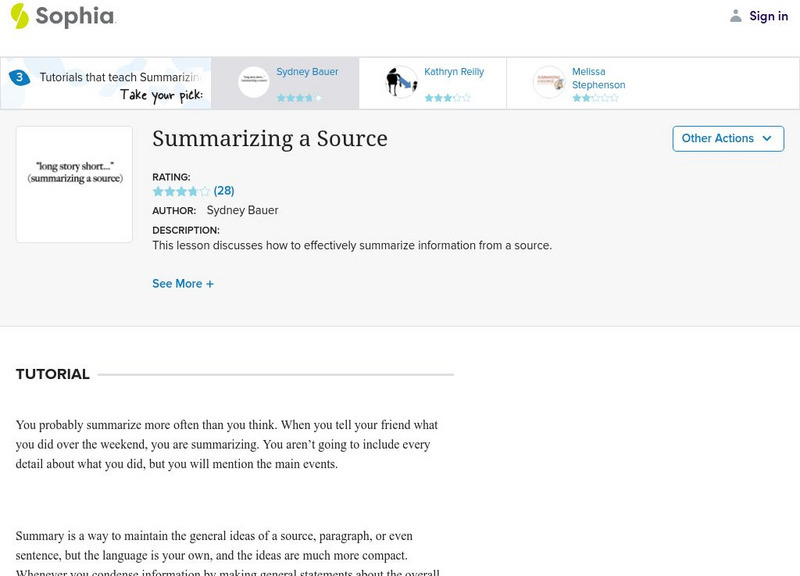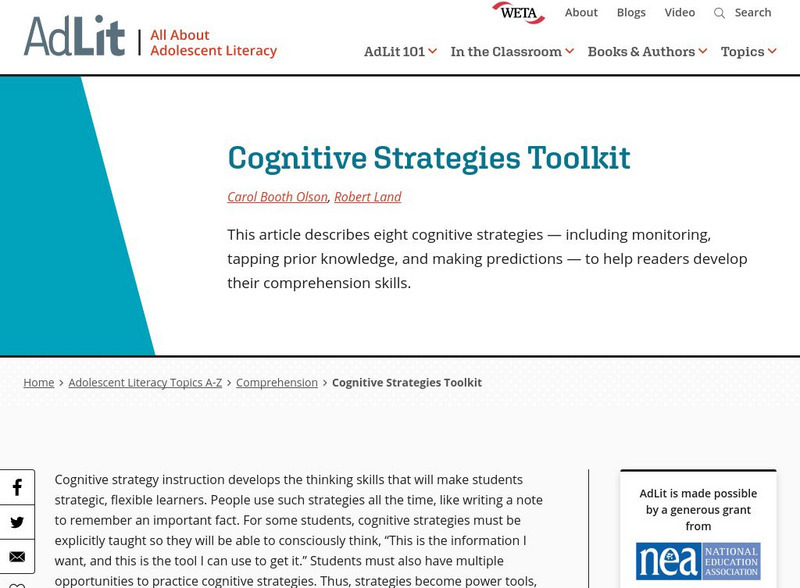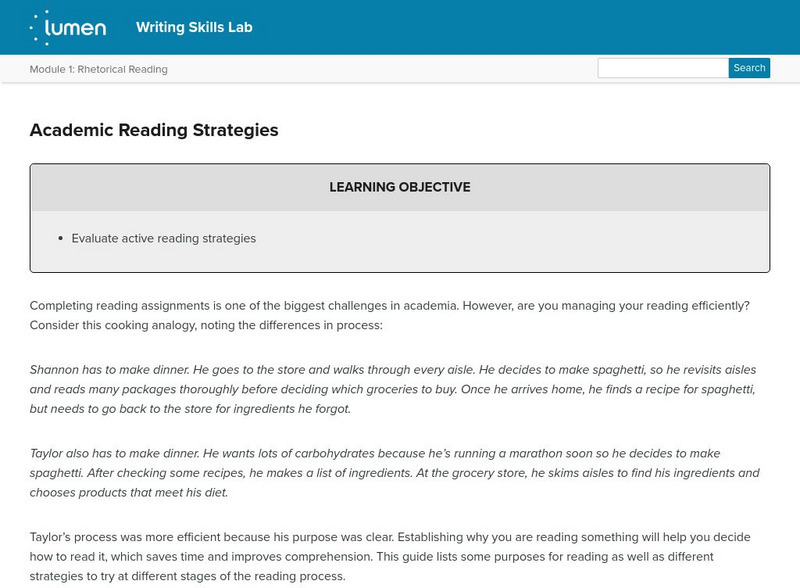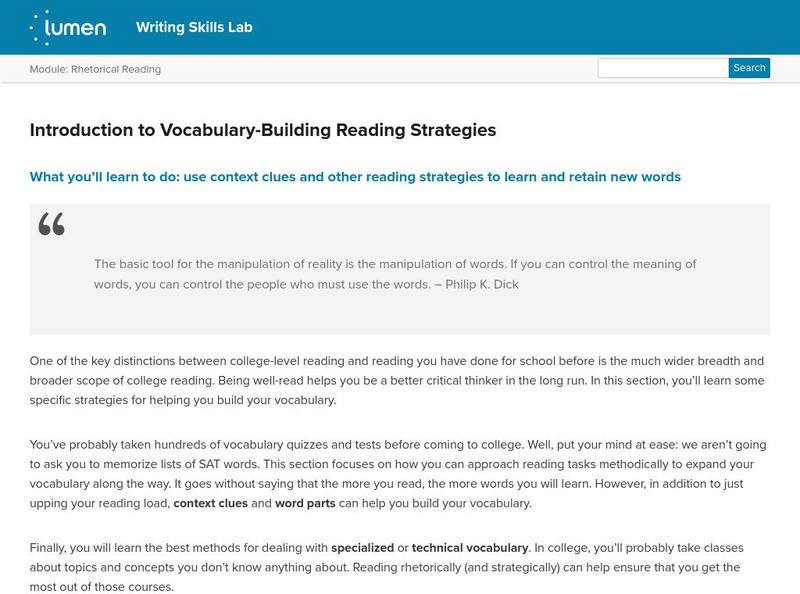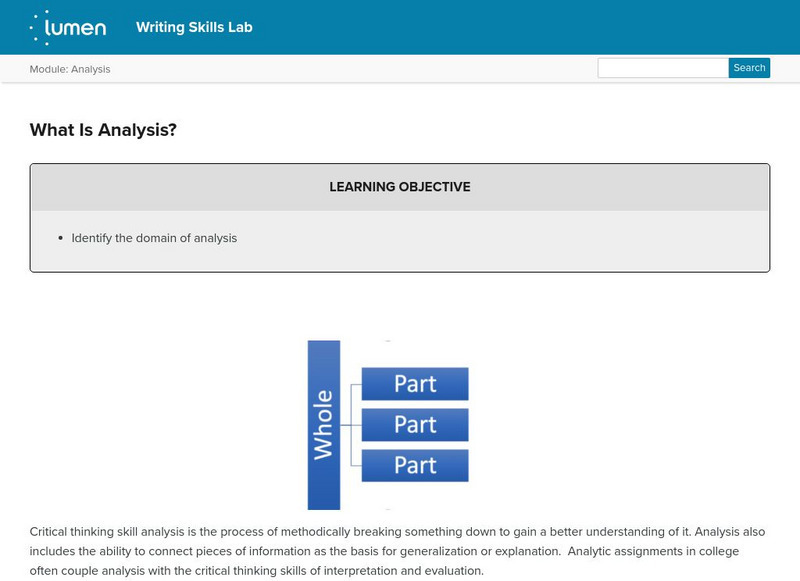Grammarly
Grammarly Handbook: Body of the Text
This page explains how to write the body of the text from your outline (a link to "How to Write an Outline" is provided). The body must support the thesis and provide evidence and examples to support the thesis.
Grammarly
Grammarly Handbook: The End
A list of text requirements that may be necessary after the conclusion of a research paper.
Virginia Tech
How to Read Essays You Must Analyze
Provides a detailed discussion on how to approach an essay for analysis.
Palomar Community College District
Palomar College: Reading an Informational Text
Glenn Foss, an instructor at Palomar College, discusses some possible reasons why students have problems reading and recalling textbook material. Provides an outline for seven steps of effectively reading assigned material.
Wisconsin Response to Intervention Center
Wisconsin Rt I Center: Cloze Passage [Pdf]
Classroom teachers will learn about cloze passages, a contextual analysis instructional strategy. Teachers will learn how to implement cloze passages, understand how to measure progress with cloze passages, find research that supports...
Michigan State University
Michigan State University: Intervention for Reading: Paraphrasing
Improve understanding of expository materials by getting the main ideas through paraphrasing. The paraphrasing strategy helps students recall the main ideas and specific facts of materials they read. There are three steps for teaching...
Sophia Learning
Sophia: Connecting With Reading
A brief slideshow that identifies and defines the ways that readers can make connections while reading a text (Text to Self, Text to Text and Text to World) and instructions about annotating while reading. Includes a worksheet that...
Sophia Learning
Sophia: Reading Strategies: Tutorial
In this slideshow tutorial, students will review different types of reading strategies to promote comprehension of text. The strategies included are the following: making predictions, visualizing, questioning the text, retelling,...
Sophia Learning
Sophia: Summarizing a Source
Information that can be read or listened to that discusses two methods of how to write effective summaries as well as how to avoid plagiarism when summarizing informational texts. Finally, examples of literary summaries are provided....
Harvard University
Harvard College Writing Center: How to Do a Close Reading
A brief explanation of the tasks involved in doing a close reading in preparation for writing. This writer breaks the process into three steps which involve annotating the text, looking for patterns, and asking questions of the text.
Other
Siu Edwardsville: Professional Development Center: Lesson Plan: Inference [Pdf]
Lesson teaching the use of word selection, context, structure, and specific references in making inferences within non-fiction texts.
AdLit
Ad lit.org: What Schools and Students Can Do to Foster College Readiness
If schools and students understand college readiness in a more comprehensive way, they can do more to develop the full range of capabilities and skills needed to succeed in college. Click on Classroom Strategies on the left of the page...
AdLit
Ad lit.org: Cognitive Strategies Toolkit
This article describes eight cognitive strategies - including monitoring, tapping prior knowledge, and making predictions - to help readers develop their comprehension skills.
CommonLit
Common Lit: How Resilience Works
A learning module that begins with "How Resilience Works" by Diane Coutu, accompanied by guided reading questions, assessment questions, and discussion questions. The text can be printed as a PDF or assigned online through free teacher...
Lumen Learning
Lumen: Critical Reading: Specialized Reading Strategies
This lesson focuses on specialized reading strategies such as online reading, reading in math, science, etc., and reading charts and graphs. It provides text, videos, charts and graphs, graphics, and a self-check.
Lumen Learning
Lumen: Critical Reading: Reading Strategies
This lesson plan focuses on reading strategies including scanning, skimming, SQ3R, High-5 Reading Strategies, technology, and rhetorical context. It includes text information and videos.
Lumen Learning
Lumen: Rhetorical Reading: Strategies for Active Reading
This instructional activity focuses on strategies for active reading such as annotating your texts, reading multiple times, and using your prior knowledge.
Lumen Learning
Lumen: Rhetorical Reading: Academic Reading Strategies
This lesson focuses on reading strategies including understanding your purpose, and before, during, and after reading strategies.
Lumen Learning
Lumen: Rhetorical Reading: Intro to Vocabulary Building Reading Strategies
This article explains in general how to build vocabulary using reading strategies such as context clues.
Lumen Learning
Lumen: Rhetorical Reading: Putting It Together: Rhetorical Reading
This is a summary of the previous lessons having to do with rhetorical reading including rhetorical context, previewing text, actively reading, using context clues, and reading voraciously.
Lumen Learning
Lumen: Writing Skills: Conclusions
This instructional activity focuses on strategies for writing effective conclusions. It provides a list of strategies and a sample essay.
Lumen Learning
Lumen: Analysis: What Is Analysis?
This lesson focuses on analysis including defining analysis and listing the essential skills of analysis.
Lumen Learning
Lumen: Analysis: Suspend Judgment
This article focuses on the need to suspend judgment and keep an open mind while analyzing a situation or researching a topic.
Lumen Learning
Lumen: Analysis: Evidence
This lesson focuses on evidence in the analysis including being selective with evidence, being clear and explicit, and moving past obvious interpretations.



